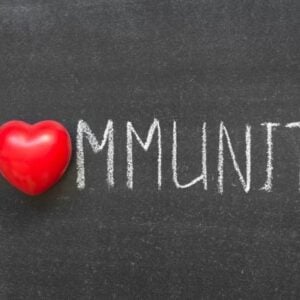On the western coast of Santiago Island in Cabo Verde lies the tranquil fishing village of Rincão, where the Atlantic Ocean shapes the rhythm of daily life. Among the village’s modest homes and bustling fish markets, Maria Sábado Horta Fidalgo, known affectionately as Mãezinha, has carved out a remarkable path. At 44, she is more than a fishmonger; she is a boat owner, community leader, advocate for sustainable fishing, and a woman determined to transform challenges into opportunity for herself and her village.
Mãezinha lives in a multigenerational household that includes her 86-year-old mother, her eight-year-old daughter, and her niece. Her eldest daughter, now 21, has emigrated, leaving Mãezinha as the anchor of a family life built around the sea—a life she embraced not merely by inheritance, but by calling. Sitting atop her small house overlooking the ocean, she reflects on her work: “I have two daughters… I’m a fishmonger, I have two boats,” she says, watching as young men and women sort the morning’s catch brought in by local fishermen.
For Mãezinha, fishing is a legacy. She grew up immersed in the industry, learning the ropes from her father, one of Rincão’s most respected shipowners. She fondly recalls trailing him along the shore, observing fishermen at work, and witnessing firsthand how fishing brought economic stability to their home. When her father passed away in 2011, she felt a profound responsibility to continue his work. “I felt like investing in the sea. I realized that the sea is a great source of income with many benefits for the family,” she recalls.
Despite the early end to her formal education, caused by illness and hospitalization, Mãezinha’s drive to learn never waned. Over the years, she attended numerous trainings offered by NGOs and development agencies on topics such as cooking, pastry, and fish processing. “Often, we in fishing communities don’t know how to store fish when we have large quantities. With the training, we learned to make fish burgers, fillets, soufflés… It was very important, and we try to apply what we’ve learned in practical life,” she says. These sessions also covered food safety and hygiene, equipping her with knowledge that would improve her business operations and community services.
Fishing remains a male-dominated profession, yet Mãezinha does not see her gender as a barrier. Her greatest challenge continues to be financial: maintaining boats, purchasing bait, and keeping her vessels operational requires constant investment. In 2019, she received support from the Raiz Azul Project—a community-driven initiative funded by the Darwin Initiative and implemented by the University of Cabo Verde alongside local partners—which allowed her to build her first boat. She reinvested her earnings, gradually expanding her home and business, and later built a second boat using income from oxygen bottle sales and profits from the first vessel.
As president of her local fishing association, Mãezinha has leveraged her leadership position to advocate for better support from authorities. Through her efforts, local boats received fiberglass upgrades via a partnership with the Ministry of the Sea. Yet she remains acutely aware of the hurdles faced by her community: idle boats, struggling fishermen, and young people leaving for opportunities abroad. “Anyone who wants to stay in their homeland… and is supported with an engine, will benefit on a daily basis,” she says, expressing both the practical and aspirational dimensions of her work.
Mãezinha’s vision extends beyond personal success. She hopes to acquire a delivery vehicle to meet rising demand for fresh fish in Praia and other towns, and to expand her once-thriving oxygen bottle business. “My dream is to invest everything in my country. I won’t give up… The important thing is to fight and never give up because stopping is worse,” she explains. She emphasizes innovation, focusing on services the community lacks rather than competing in saturated markets, and consistently reinvesting in opportunities that benefit others.
Her commitment to sustainable practices is equally strong. Mãezinha advocates for responsible fishing, warning against overfishing, particularly during spawning seasons, and raising awareness about coastal erosion caused by sand harvesting. She campaigns for basic infrastructure improvements, including public sanitation facilities near the beach, to ensure fish are handled hygienically. “The sea is the first moment of hygiene for our fish. It should always be clean,” she insists.
Beyond advocacy, Mãezinha actively mentors other women in her community, sharing her knowledge and experience to create new opportunities for them. “I usually pass on my experience and knowledge to other people in the community because I want there to be other active women like me,” she says. In a village where resources are limited and many boats remain idle, Mãezinha stands as a beacon of determination and resilience, proving that one woman’s vision can uplift an entire community.
Her hope is not just for herself but for generations to come. “I have faith that I will achieve something, a happy businesswoman who will employ people… not just at sea, but also in catering, tourism, and fish processing,” she affirms. With her feet in the sand and her eyes on the horizon, Mãezinha embodies the spirit of innovation, perseverance, and community leadership, showing that investing in Cabo Verde means investing in people, culture, and the future of the sea.







